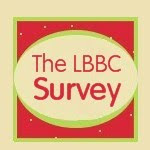The problem is that there is a popular misconception that children will learn English better if they are encouraged, or allowed, to use only English even when the parent's language may be Spanish. This is not so.
When a child has a well developed first language, in this case, Spanish, they will learn better the second language, in this case, English. All the skills they have acquired in the first language will transfer to the second one.
Parents will be able to develop better the language they know best. If that language is Spanish, that is the language they should model for their children.
A child who learns to speak two languages will have many more opportunities than a monolingual child. But important as the opportunities offered by knowing two languages, there are more powerful reasons to encourage a child to grow up bilingually.
If the primary language of parents, grandparents, or caregivers is Spanish the children who can only speak English will be deprived of the very valuable cultural and human enrichment that they could receive in Spanish. And this is a loss that cannot be overestimated.
Many parents emphasize English, disregarding Spanish, considering that in this way their children will be better able to compete and succeed in an English-speaking world. What is very unfortunate is that they fail to realize that the World is becoming less and less monolingual, and that many English-speaking parents are choosing to ensure that their children become bilingual. Thus, someday Latinos may find themselves not being in a good competitive situation not because they do not know English, but because they know only English, when others, who had no Latino heritage, have become fluent two languages.
Human beings are extraordinarily able to survive limitations, but, given a choice, two feet make life easier than one, two hands, easier than one. Why would it be difficult to realize that two languages will provide twice as many opportunities than one?
My own life has been enriched by bilingualism. I did not have the good fortune of growing up bilingual, and had to go the long route of learning English when already almost an adult. Yet, knowing two languages has given me great opportunities --for work, for professional enrichment, for traveling, for developing friendships and relationships, for growing in understanding of other human beings. If I were to single out the most valuable tool in my life it would be knowing two languages, and when I have recently published my life memoirs I have called it Vivir en dos idiomas or "living in two languages" to acknowledge the significance of my two languages in my long and rich life.
I chose to bring up my own four children speaking Spanish. It was the only language used at home. They learned English in school not only without difficulty, but rather with the added support of knowing well another language. Today all four are very successful professionals in different areas --each and everyone has benefited from being bilingual.
Latino children have a most rich cultural heritage that they will never be able to fully enjoy unless they know Spanish well. Let's not deprive out children from this rightful heritage, let's give them the power of two languages, the joy of bilingualism, the opportunity to do twice as much good unto others.
Feel free to visit me at: http://www.almaflorada.com/ where you can always leave me a message.
--------------------------------------
Alma Flor Ada, Professor Emerita at the University of San Francisco, has devoted her life to advocacy for peace by promoting a pedagogy oriented to personal realization and social justice. A former Radcliffe Scholar at Harvard University and Fulbright Research Scholar she is an internationally reknown speaker in issues of bilingualism and multicultural education.
Alma Flor is the author of numerous children’s books of poetry, narrative, folklore, personal memoirs and non fiction. Her books have received prestigious awards; among many: Christopher Medal (The Gold Coin), Pura Belpré Medal (Under the Royal Palms), Once Upon a World (Gathering the Sun), Parents’ Choice Honor (Dear Peter Rabbit), NCSS and CBC Notable Book (My Name is María Isabel), Junior Library Guild (Tales Our Abuelitas Told). She is also the author of a book of memoirs, Vivir en dos idiomas, two novels for adults, En clave de sol and A pesar del amor, and several professional books for educators, including A Magical Encounter: Latino Children’s Literature in the Classroom, as well as a wealth of educational materials. Her work, in collaboration with F. Isabel Campoy in promoting authorship in students, teachers, and parents is the content of their book Authors in the Classroom: A Transformative Education Process. Alma Flor Ada has been awarded the American Education Research Association [AERA] Hispanic Issues Award for Research in Elementary, Secondary and Postsecondary Education and the California Association for Bilingual Education [CABE] Life Long Award.

















2 comments:
Great post! I get very excited when I find people that not only understands the importance of being bilinugal and is bilingual but also shares the knowledge! I am a bilingual speech therapist and Kindermusik educator and I always try to encourage parents to continue speaking Spanish, or whatever their native language is. Thanks for sharing!!
Vanessa
http://languagemusicandmore.wordpress.com
I think you made a good point here. Learning a second language should be easily once you learn your first language. However, that also depends on how closely related those languages are.
Post a Comment